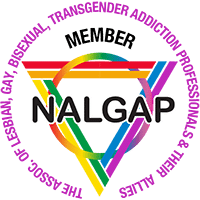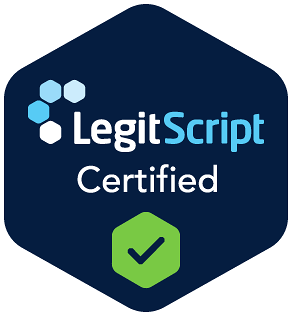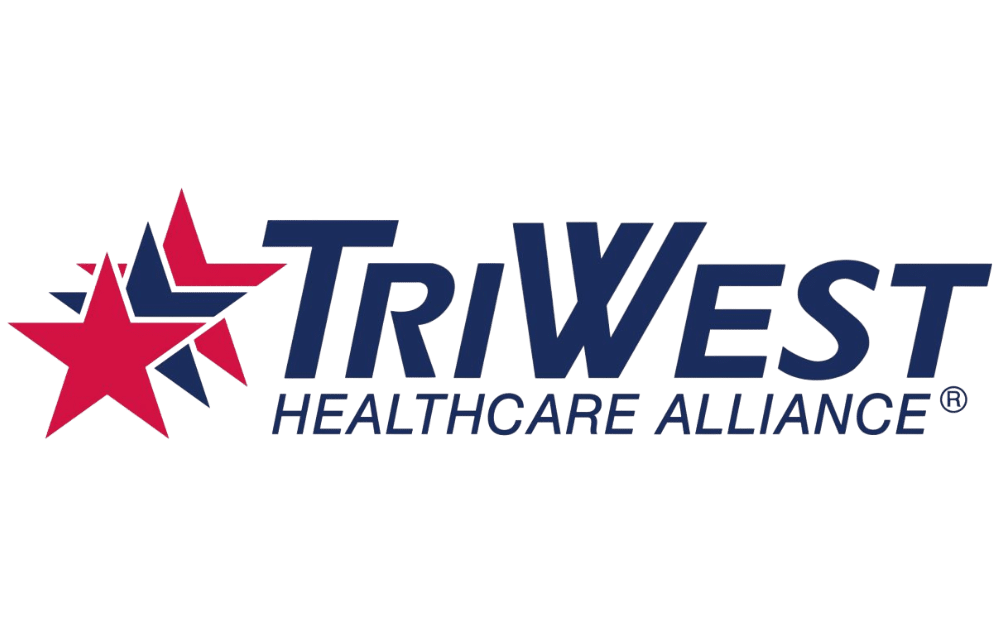Cocaine treatment
The Journey to Recovery
Embarking on the journey of recovery from cocaine addiction is a decision that requires immense courage and commitment. It is not a linear path, often filled with challenges and moments of introspection. However, with the right support and treatment, overcoming cocaine addiction is entirely possible. At Mile High Recovery Center, we understand that the healing process is deeply personal and multifaceted.
Cocaine treatment at our center begins with a comprehensive assessment to tailor the treatment plan to each individual’s specific needs. Our approach encompasses not only detoxification but also a wide range of therapies to address the psychological, emotional, and physical aspects of addiction. The journey is unique for everyone, but the goal remains the same: achieving sustained sobriety and a fulfilling life beyond cocaine.
Personalized Treatment Plans
No two individuals are the same, and neither are their experiences with addiction. At Mile High Recovery Center, we pride ourselves on creating personalized treatment plans that cater to the diverse needs of our clients. This involves a thorough evaluation process to determine the most effective course of action for each individual.
The personalized treatment approach at our center includes various evidence-based therapies such as Cognitive Behavioral Therapy (CBT) and Dialectical Behavior Therapy (DBT). These therapies aim to help individuals recognize and change destructive patterns of thinking and behavior. By addressing the root causes of addiction, we equip our clients with the tools they need to manage triggers and prevent relapse.
Detox and Withdrawal Management
Detoxification is often the first step in cocaine treatment, serving as a crucial phase for clearing the substance from the body. At Mile High, we offer medically supervised detox programs to ensure a safe and comfortable experience for our clients. Withdrawal from cocaine can present both physical and psychological challenges, and our team is equipped to manage these symptoms effectively.
Our detox programs are designed to provide a supportive environment where clients can begin their recovery journey with confidence. We prioritize the safety and well-being of our clients, offering round-the-clock care and monitoring to address any medical needs that may arise during this critical phase.
Inpatient vs. Outpatient Care
Choosing between inpatient and outpatient care is a pivotal decision in the cocaine treatment process. Inpatient care at Mile High Recovery Center provides clients with a structured environment, away from external influences and temptations. This immersive setting allows individuals to focus entirely on their recovery while receiving comprehensive support from our dedicated team.
On the other hand, outpatient programs offer flexibility for those who need to balance treatment with daily responsibilities. Our Intensive Outpatient Program (IOP) provides a structured therapeutic framework that can adapt to individual schedules, allowing clients to maintain their commitments while receiving the support needed for recovery.
The choice between inpatient and outpatient care depends on various factors, including the severity of addiction, support system, and personal circumstances. Our team works closely with each client to determine the best fit for their recovery journey.
Holistic and Experiential Therapies
Beyond traditional therapies, Mile High Recovery Center offers a range of holistic and experiential therapies to support the recovery process. We believe in healing the whole person, addressing not only the addiction but also mental, emotional, and physical well-being.
Our holistic offerings include art and music therapy, which provide creative outlets for expression and healing. Additionally, our experiential therapies, such as equine-assisted therapy and adventure therapy, foster personal growth and self-discovery in unique and engaging ways.
By incorporating these innovative modalities, we aim to enhance the therapeutic experience and provide clients with diverse tools for navigating their recovery journey. These activities not only support sobriety but also promote self-esteem and resilience.
Community Support and Alumni Network
The journey to recovery does not end with treatment; it is a lifelong commitment. At Mile High Recovery Center, we understand the importance of ongoing support and have cultivated a strong community network to assist our clients beyond their time in treatment.
Our alumni network plays a vital role in providing peer support, mentorship, and community engagement opportunities. This active community is a testament to the lasting relationships formed during treatment and the shared commitment to sustained sobriety.
We encourage clients to stay connected through alumni events, support groups, and volunteer opportunities. These connections serve as a foundation for long-term recovery, fostering a sense of belonging and accountability within the recovery community.
Specialized Care for Co-occurring Disorders
Mental health challenges often accompany substance use disorders, making integrated treatment essential. At Mile High, we specialize in dual-diagnosis care, addressing both addiction and co-occurring mental health conditions such as anxiety, depression, and PTSD.
Our multidisciplinary team of clinicians is trained to provide comprehensive care that addresses all aspects of a client’s mental health. Through individualized therapy and medication management, we strive to improve overall well-being and stability, empowering clients to achieve their recovery goals.
This integrated approach ensures that all underlying issues are addressed, reducing the risk of relapse and promoting sustained recovery. By treating the whole person, we help our clients achieve a balanced and fulfilling life free from the grips of both addiction and mental health challenges.
Medication-Assisted Treatment Options
While therapy and support are critical components of cocaine treatment, some clients may benefit from medication-assisted treatment (MAT) to support their recovery journey. Our center offers MAT options such as Suboxone and Vivitrol, which can assist in managing cravings and reducing the risk of relapse.
Our medical team works closely with each client to determine if MAT is an appropriate option, tailoring the treatment to individual needs and medical history. Combined with counseling and behavioral therapies, MAT can be a powerful tool in the recovery process, providing individuals with additional support as they work toward sobriety.
Integrated Housing and Treatment Pipeline
At Mile High Recovery Center, we recognize the critical role that stable housing plays in the recovery process. Our integrated housing-to-treatment pipeline offers clients access to sober living homes, providing a supportive and drug-free environment that fosters recovery.
These homes serve as a transitional space for individuals moving from treatment to independent living. By offering coordinated housing and treatment services, we create a seamless recovery experience that supports reintegration into society and long-term sobriety.
Empowering the LGBTQ+ Community
Mile High Recovery Center is committed to providing inclusive and affirming care for individuals from the LGBTQ+ community. We understand the unique challenges that may arise for LGBTQ+ individuals in the context of addiction and recovery, and we offer tailored support to address these needs.
Our team is trained in culturally competent care, ensuring that every client feels seen, heard, and valued. Through specialized therapy groups and community-building activities, we create a safe and empowering environment for all our clients to thrive in their recovery journey.
Insurance and Financial Assistance
Navigating financial considerations can be a concern for many seeking treatment. At Mile High Recovery Center, we strive to ease this burden by accepting a wide range of insurance plans, including major carriers such as Aetna, Cigna, and Blue Cross Blue Shield. Our team is dedicated to assisting clients with insurance verification and ensuring that coverage aligns with their treatment needs.
In addition to accepting insurance, we offer financial assistance options for those who may require additional support. Our goal is to make cocaine treatment accessible and affordable, empowering individuals to take the first step toward recovery without financial barriers.
Understanding Cocaine Addiction Treatment
What are the first steps someone should take if they decide to seek treatment for cocaine addiction?
If you’re contemplating seeking treatment for cocaine addiction, the initial step is acknowledging the need for help and understanding that recovery is a journey, not a quick fix. At our center, we begin with a comprehensive assessment to tailor the treatment plan to each individual’s specific needs. This involves detoxification to safely remove cocaine from the body while managing withdrawal symptoms, often under medical supervision. From there, the journey involves a combination of therapies to address the psychological, emotional, and physical aspects of addiction. It’s crucial to have a support system in place, whether it be through family, friends, or a community program. Many find it beneficial to start with this foundation and build towards a more structured treatment plan that may include inpatient or outpatient programs, depending on personal circumstances. How would you describe your current support system?
Are there common misconceptions about cocaine treatment that you encounter, and how do you address them?
A prevalent misconception is that cocaine addiction treatment is purely about willpower, but it involves much more than just deciding to quit. Effective treatment combines medical intervention, therapy, and support systems. Many people mistakenly believe that treatment is only necessary when someone hits “rock bottom,” which isn’t the case; it can start at any point and still be very successful. Other misconceptions include the idea that treatment guarantees a cure. In reality, treatment is about managing addiction and equipping individuals with tools to handle life’s challenges without resorting to drug use. Addressing these misconceptions requires education and open dialogue about the complexity and individualized nature of addiction treatment. What misconceptions have you heard, and how do they align with or differ from your understanding of treatment?
Can you explain the difference between inpatient and outpatient care in the context of cocaine addiction treatment?
Inpatient care is a type of residential treatment where individuals live at the facility, providing a structured environment that minimizes exposure to triggers and focuses on recovery. It’s ideal for those who need a high level of supervision and support, often because they lack a stable home environment or have severe addiction issues. Outpatient care, including Intensive Outpatient Programs (IOP), allows individuals to live at home while attending treatment sessions at the facility. This option is suitable for those who have a supportive home environment and need to balance treatment with daily responsibilities, such as work or family commitments. Our team collaborates with each client to determine which approach best aligns with their personal needs and circumstances. Which type of care do you believe would better fit your lifestyle and support your recovery journey?
How does a personalized treatment plan contribute to the success of overcoming cocaine addiction?
Personalized treatment plans are crucial because they cater to the unique circumstances and needs of each individual. For instance, our center utilizes evidence-based therapies like Cognitive Behavioral Therapy (CBT) and Dialectical Behavior Therapy (DBT) to help clients identify and alter destructive thinking patterns. Customized plans consider factors such as co-occurring disorders, personal history, and specific triggers. By addressing root causes of addiction and focusing on the individual’s strengths and challenges, personalized plans provide a more effective and sustainable path to recovery. This tailored approach ensures that clients are equipped with the right tools and strategies to manage their sobriety long-term. Have you or someone you know experienced a personalized treatment plan, and what impact did it have on the recovery process?
What role do holistic and experiential therapies play in cocaine addiction treatment?
Holistic and experiential therapies are integral in treating the whole person, not just the addiction. These therapies, such as art and music therapy, equine-assisted therapy, and adventure therapy, offer creative and engaging ways for individuals to express themselves and explore emotions. They complement traditional therapies by promoting mental, emotional, and physical well-being. For example, equine-assisted therapy can help build trust and improve communication skills, while adventure therapy boosts self-esteem and resilience. These modalities enhance the therapeutic experience and often lead to breakthroughs that might not occur in a more traditional setting. Have you ever participated in a holistic therapy, and if so, what was your experience like?
How does the integrated housing and treatment pipeline support recovery from cocaine addiction?
The integrated housing and treatment pipeline offers a seamless transition from treatment to independent living, providing a stable and supportive environment. Sober living homes offer a drug-free space where individuals can apply what they’ve learned in treatment while continuing to receive support from peers and professionals. This setup fosters a sense of community and accountability, which are vital for maintaining sobriety. By coordinating housing and treatment services, individuals can build a strong foundation for recovery, reducing the risk of relapse as they reintegrate into society. How do you think a stable living environment could impact your recovery or that of someone you know?
What makes medication-assisted treatment a viable option for some individuals recovering from cocaine addiction?
Medication-assisted treatment (MAT) combines medications with counseling and behavioral therapies to support recovery. While there is no FDA-approved medication specifically for cocaine addiction, medications like Suboxone and Vivitrol are used in broader addiction management programs and can be effective in managing cravings and reducing relapse risk. The advantage of MAT is its ability to stabilize brain chemistry, relieve withdrawal symptoms, and provide a safer, more comfortable path to sobriety. Our medical team carefully evaluates each client’s needs to determine if MAT is appropriate, factoring in their medical history and individual recovery goals. Do you think MAT could be beneficial in your situation, and what reservations might you have about its use?
Resources
- Substance Abuse and Mental Health Services Administration – The Substance Abuse and Mental Health Services Administration (SAMHSA) is a government agency that leads public health efforts to advance the behavioral health of the nation.
- American Psychiatric Association – The American Psychiatric Association (APA) is a professional organization of psychiatrists that works to ensure humane care and effective treatment for all persons with mental illness.
- National Alliance on Mental Illness – The National Alliance on Mental Illness (NAMI) is a grassroots mental health organization dedicated to building better lives for those affected by mental illness.
- National Institute on Drug Abuse – The National Institute on Drug Abuse (NIDA) is a government agency that aims to advance science on the causes and consequences of drug use and addiction.
- Centers for Disease Control and Prevention – The Centers for Disease Control and Prevention (CDC) is a national public health institute that works to protect public health and safety through the control and prevention of disease, injury, and disability.
















